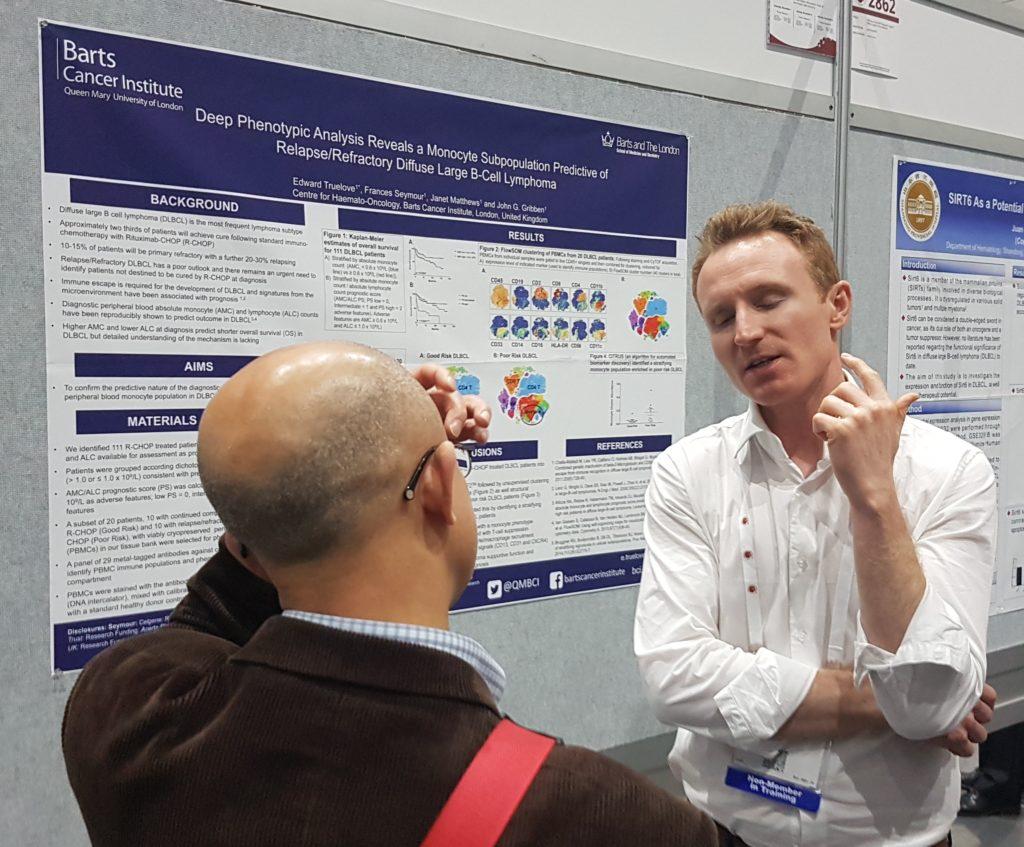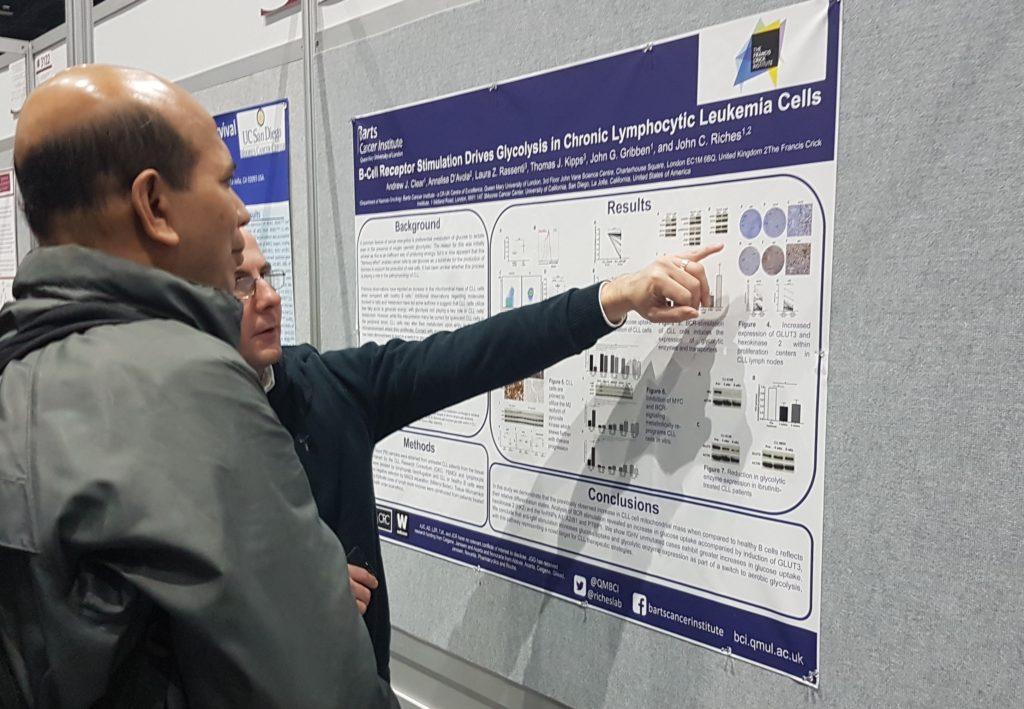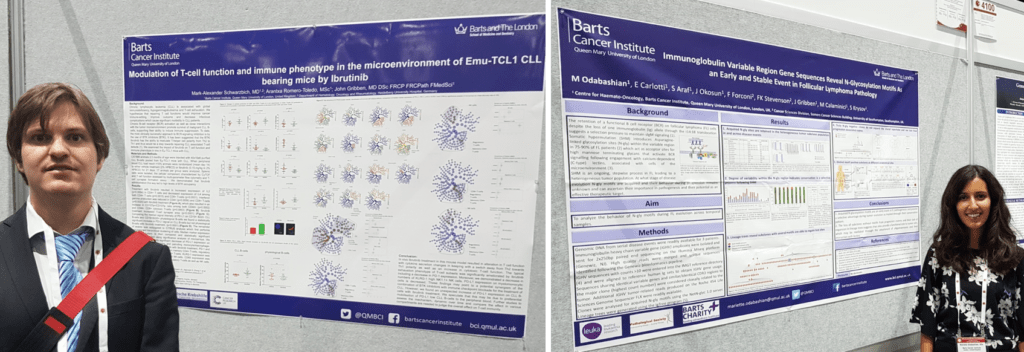BCI at the 60th ASH Annual Meeting
'The premier event in malignant and non-malignant haematology'
Researchers from our Centre for Haemato-Oncology attended the 60th American Society of Hematology (ASH) Annual Meeting and Exposition, which took place in San Diego on 1st-4th December 2018. The ASH Annual Meeting provides an invaluable opportunity to showcase the work being conducted here at the BCI and brings together professionals from all subspecialties of blood disease research. This year’s meeting was the largest yet, attracting approximately 30,000 attendees.
A very successful year for our researchers

There was once again a strong presence from the BCI and a number of oral and poster presentations were delivered by our researchers covering a broad range of new and exciting clinical and basic research. Professor John Gribben, Lead of our Centre for Haemato-Oncology, presented new data from clinical trials and participated in a number of discussion panels and interviews focusing on the treatment landscape of chronic lymphocytic leukaemia (CLL).
Dr Li Jia, a Group Leader in the Centre, presented a poster about her work on overcoming acquired resistance to Rituximab, a drug used to treat diffuse large B-cell lymphoma (DLBCL) - the most common type of lymphoma. Her work in cell lines and pre-clinical models has shown that the use of an additional drug, Chidamide, can re-sensitise DLBCL cells to Rituximab.
Further studies are currently ongoing to identify patients in which standard DLBCL treatments will not be effective by determining the level of monocytes (a type of white blood cell) in patient blood samples. Having higher levels of monocytes in the blood before treatment can predict a worse outcome for patients following standard treatment. Work carried out by Edward Truelove, as part of his PhD training, focuses on determining the levels of these cells in the blood prior to treatment so that it may be able to be used to guide potential alternative treatments that will be better suited for these patients.

Jennifer Edelmann, Clinical Research Fellow (CRF) and recipient of an ASH Fellowship, gave an oral presentation detailing her research on the cell surface receptor NOTCH1 and its role in activation of the B-cell receptor in CLL. Activating mutations in this protein are enriched in advanced disease stages of CLL, one of the most common types of leukaemia in adults. This discovery potentially opens up new treatment approaches tailored towards suppression of abnormally strong signalling from mutant NOTCH1 in CLL.
Targeting the metabolic pathway could represent a whole new therapeutic strategy for treating CLL patients. Andrew Clear, a Research Assistant in the Centre, presented a poster with findings from a study where they observed, like in many other cancers, metabolism in CLL is dysregulated and cells preferentially metabolise glucose to lactate even in the presence of oxygen.
Frances Seymour (recipient of an ASH Fellowship), Joseph Taylor and Robin Sanderson, (CRFs in the Centre), presented their research that formed the basis of their training. Dr Mark Schwarzbich (PhD student) presented a poster that highlighted the effect of two drugs used to treat CLL, Ibrutinib and Acalabrutinib, on T cells. Mariette Odabashian presented a poster focussed on identifying early events in the development of follicular lymphoma (FL). Identifying early lesions in FL pathology could lead to novel therapies that reduce the cycles of remission and relapse experienced by the majority of patients.

Category: Conferences, General News

No comments yet